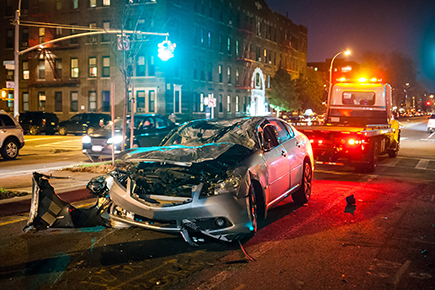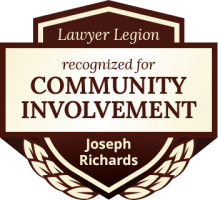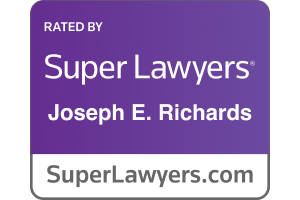- Contact Us Now (888) 883-6588 TAP TO CALL
How Vicarious Liability Can Impact Your California Car Accident Case

How Vicarious Liability Can Impact Your California Car Accident Case
If you were hurt in a car accident in California, you might be entitled to compensation in a personal injury lawsuit. Suppose the negligent driver was working for his employer during the accident. Learn more about vicarious liability in California car accidents in this article. Contact our Orange County car accident lawyers at the Law Office of Joseph Richards, P.C. for assistance.
What Is Vicarious Liability?
Vicarious liability is a legal doctrine that states that a party can be held indirectly responsible for an injury even if they did not directly cause it. For example, in California, a person or entity may be held vicariously liable for medical bills, lost earnings, pain and suffering, and property damages after a car accident.
This is critical because the vicariously liable party could have more insurance coverage and assets than the person who caused the accident. But vicarious liability is restricted to situations where the person or entity has a legal relationship with the individual who caused the accident. For example, in California, there are three common scenarios where vicarious liability is a factor:
Where an employer is vicariously liable for the actions of an employee. For example, if a delivery van driver hits you at a traffic light and breaks your arm, you might hold the employer liable for the worker’s negligence. This is important because the company probably has more insurance coverage than the individual employee.
Parental liability for injuries and damages their children cause. For example, if a 16-year-old runs a red light and hits you in a crosswalk, you may be able to hold his parents liable in a car accident lawsuit.
The Tracy Morgan Case
A famous example of vicarious liability in action was the severe accident that comedian Tracy Morgan experienced in 2014. A Walmart truck driver hit Morgan’s limo at high speed on the New Jersey Turnpike, leaving him in a coma with critical injuries.
Morgan suffered a concussion, broken nose, ribs, and leg. A friend was killed and two others were also hurt. The truck driver that rear-ended the limo was going 20 MPH over the speed limit and did not stop in heavy traffic.
Instead of suing the truck driver, Morgan’s attorney filed a personal injury lawsuit against Walmart because his legal team argued that the company was vicariously liable for the accident. The case was ultimately settled for approximately $90 million.
Vicarious Liability In California For Employee Negligence
California law provides that if someone is driving a car to do their work duties or do something for the employer, that employer may be liable for injuries that happen in a car accident the employee causes. In addition, the employer may be responsible for torts that the worker commits if they were working when the accident occurred.
Note that vicarious liability applies to private companies and public entities. Also, if you suffer an injury in a car accident caused by an employee’s negligence, you may be able to receive compensation in a claim or lawsuit.
The Independent Contractor Exception
The employer is vicariously liable for their employees’ negligence in auto accidents. However, the employee and employer relationship differs from that between the employer and an independent contractor. Therefore, the employer is not vicariously liable if an independent contractor causes a car accident.
For instance, suppose you are hit in an Orange County crosswalk by an independent contractor delivering flowers. Because the workers are not direct employees of the company, you cannot sue the employer for damages. Instead, you can only file a claim against the driver and his personal auto insurance policy. If there are questions about whether a driver is an employee or an independent contractor, your attorney will investigate this matter.
The defense attorney may try to argue that the employee was not really an employee. Instead, he was an intern, part-time, or contract worker. Your attorney will need strong evidence to show the worker was an employee in this situation.
Was The Driver Acting Within the Scope Of Employment?
The employer of the driver who caused the accident could be vicariously liable for the accident if he acted within the scope of employment when it happened. However, the company attorney may try to argue that the worker was not working at the time of the accident. How do you know if he was working or not?
It helps to begin with this question: Was the worker doing his job when the crash happened? If so, the worker was likely acting within the scope of employment at the time. In most car accidents, the critical factor is if driving is part of the workers’ daily job duties. This does not mean the worker has to drive daily as part of his job. It simply means that the workers’ job duties require them to drive at least some of the time.
Another question that can be raised is whether the worker was doing something during the accident to benefit his company. For example, was he doing something for the company or engaged in a personal activity at the moment of the accident?
For instance, if the employee was driving to lunch when he hit you, this may be argued to be a personal activity under the doctrines of frolic and detour. So, the employer may not be held vicariously liable. But if the worker was making a delivery when he rear-ended you at the red light, the employer will probably be found liable.
Remember that driving to and from work is not usually considered acting within the scope of employment. But if the worker made job-related stops while driving home from work, your attorney will argue that the driving was for the company’s benefit.
Speak To An Orange County Car Accident Lawyer Today
Were you injured in a car accident in Orange County near Disneyland Park or Knott’s Berry Farm? If the negligent driver was working at the time of the accident, vicarious liability could be a factor in your potential case. Law Office of Joseph Richards, P.C. can help victims get the compensation they deserve. Please contact our Orange County car accident lawyer now at 888-745-2974 or 888-PI-LAW-PI for a complimentary consultation about your potential case.



















